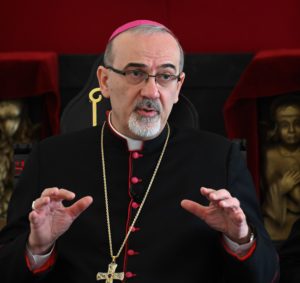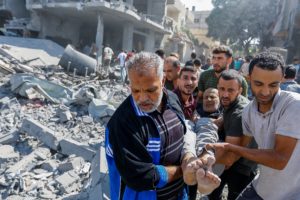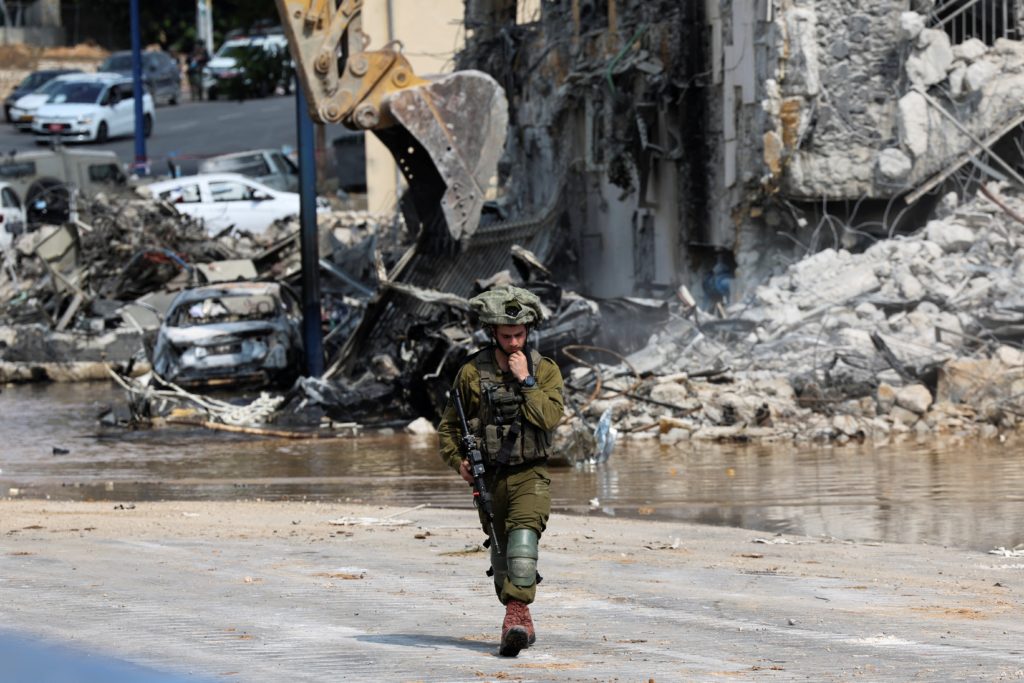ROME — For the last 75 years, the Israeli-Palestinian conflict in the Middle East has defied the best efforts of statesmen, diplomats, and activists of all stripes to find a solution, so it’s undoubtedly unfair to fault Pope Francis and the Vatican for not having figured it out either.
Even by that standard, however, the last two weeks have seen a remarkably bumpy ride for papal interventions and Vatican diplomacy vis-à-vis the mounting war in Gaza between Israel and Hamas.
On the one hand, we’ve seen Raphael Schutz, the Israeli ambassador to the Holy See, express public gratitude for Francis’ remarks during an Oct. 11 General Audience recognizing Israel’s right to self-defense, and calling for the release of Israeli hostages captured by Hamas. Schutz also expressed deep gratitude and admiration for an offer from the Latin Patriarch of Jerusalem Cardinal Pierbattista Pizzaballa, to exchange himself for those hostages if it would help bring them home.
Yet in almost the same breath, both Schutz and Israeli Foreign Minister Eli Cohen have complained publicly of what they’ve called “linguistic ambiguities” and “false parallelisms” in statements from both the Vatican and Church leaders in the Holy Land, including Pizzaballa, and demanding a “clear and unequivocal condemnation” of Hamas terrorism.
What to make of it all?
Perhaps the best explanation of the seeming schizophrenia since the Oct. 7 surprise attack by Hamas is that when it comes to the Israeli-Palestinian problem, the Vatican always has been caught between a rock and a hard place.
On the one hand, the highest interfaith priority for the Catholic Church since the Second Vatican Council has been repairing relations with Jews in the aftermath of the Holocaust, and while Judaism and Israel are hardly the same thing, there’s equally little doubt that the Vatican’s political and diplomatic stance toward the Jewish state weighs heavily on religious relations as well.
As a result, Catholic leaders most heavily invested in the relationship with Judaism have long pressed Rome to be nuanced and careful in its pronouncements on the Israeli-Palestinian problem, taking into account the unique challenges and dangers Israel faces. Since the Vatican and Israel signed a Fundamental Agreement launching diplomatic relations in 1993, the presence of outspoken Israeli envoys in Rome also has put the Vatican on notice.

Yet there are a number of forces pulling the Vatican in the opposite direction, beginning with the fact that the vast majority of Christians in the Holy Land are Palestinian Arabs, as are most bishops, who feel a natural sympathy for the Palestinian cause.
Emblematic in that regard is the story of Archbishop Hilarion Capucci, a Greek Melkite prelate who was arrested in 1974 for trying to smuggle Kalashnikov rifles, pistols, grenades, and ammunition to the PLO in the West Bank in the trunk of his Mercedes sedan. He was sentenced to 12 years in prison by an Israeli court but released in 1978 after a personal intervention from St. Pope Paul VI. He continued to be active in support of Palestine, and was arrested anew in 2010 for participating in a flotilla attempting to break an Israeli-imposed blockade of Gaza.
While few Middle Eastern bishops would go quite that far, a baseline pro-Palestinian conviction is pervasive, and try as the Vatican might to remain neutral, it’s difficult not to be influenced by the perspective of their own prelates and faithful on the ground.
Beyond that reality, there’s also the fact that as one of the world’s smallest states itself, the Vatican feels a natural sympathy for the underdog in international relations. Right now, the Holy See and Palestine are the lone permanent nonmember observer states in the United Nations, which likewise produces a natural sense of common cause.
This root fondness can be glimpsed in ways large and small in the Vatican. In a small chapel just off the hall used for previous meetings of the Synod of Bishops, for example, the walls are lined with pearl-white Stations of the Cross, a gift to St. Pope John Paul II from Yasser Arafat. The Polish pope personally directed that the PLO leader’s gift be placed in the spot.

Politically, there’s also the fact that the Vatican is a staunch supporter of a two-state solution in the Middle East, with a special status for Jerusalem and the holy sites. Officially, anyway, it’s a position still shared by Palestine, while Israel has drifted progressively further away from the two-state solution under Prime Minister Benjamin Netanyahu and his allies.
There’s also a sociological component to the Vatican’s pro-Palestinian tilt, which is that the overwhelming majority of Vatican diplomats are Italians and Europeans, who share the same broad outlook on many issues as their counterparts in European foreign ministries. As public opinion in Europe tends to be more pro-Palestinian than in the United States, that has an impact on Vatican culture and psychology.
What all this suggests is that going forward, there undoubtedly will be additional moments in which something the pope says or does, or something from one of his aides, will stir controversy, perhaps especially on the Israeli side, which is understandably sensitive to what it regards as ambivalence or strategic silences from the Catholic Church.
As those moments play out, it’s worth recalling that the Vatican’s delicate balancing act on the Middle East has a long history. Whatever one makes of it, the headaches didn’t start with Francis, and they won’t end with him — nor, alas, are they likely to end when the dust settles on the present war either.

